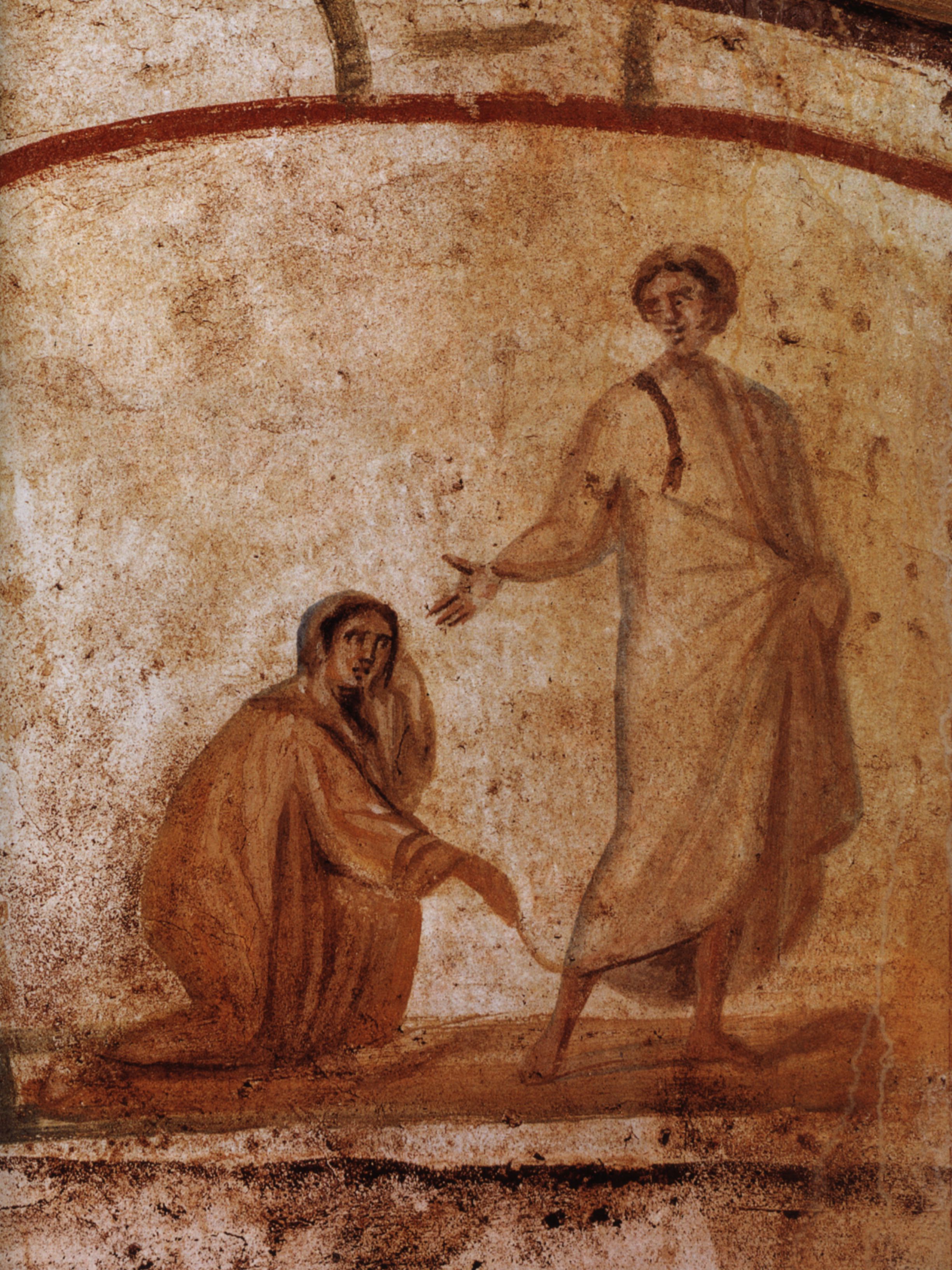Psalm 118 (Morning)
Psalm 145 (Evening)
Judges 16:15-31
A few weeks ago, while the Priest Associate at my parish was preaching, she reminded me of the old “That’s great!/That’s awful!” shaggy dog story. (The version I always heard starts with an old farmer who loses his barn in a storm…but his son returns and rebuilds it…but the son falls out of the hayloft and breaks his leg…but his broken leg keeps him from being conscripted by soldiers passing through…etc. etc. etc.) Of course, this can alternate between the farmer’s friend saying “That’s awful!” and “That’s great!” as long as the storyteller can keep up the sequence and until the listener yells, “STOP IT!”
The bottom line of the story, of course, is that what on the surface might appear great, turns out to be awful, and vice versa. We just never know.
Our Epistle today makes one wonder if they told some version of that old shaggy dog story in his day, as well. “But we pray to God that you may not do anything wrong—not that we may appear to have passed the test, but that you may do what is right, though we may seem to have failed,” Paul says to the folks at Corinth.
 In our Christian walk, our certainty too often turns out not to be what it’s cracked up to be, and uncertainty turns out to be the substrate for transformation. Take our woman in Mark today. She had to live with the uncertainty of being shamed publicly for her spontaneous hemorrhages. Probably about the only certainty she had was was her belief that somehow, this Jesus fellow was capable of curing her. Yet in the story, Jesus and the disciples were uncertain of who even grabbed his cloak, given the fact a crowd was pressing in. It was only when the woman’s shame and fear caused her to out herself that she became known…and in the end, Jesus doesn’t tell her, “Oh, yeah, sure, I can fix that,” but assures her that her own faith had made her well.
In our Christian walk, our certainty too often turns out not to be what it’s cracked up to be, and uncertainty turns out to be the substrate for transformation. Take our woman in Mark today. She had to live with the uncertainty of being shamed publicly for her spontaneous hemorrhages. Probably about the only certainty she had was was her belief that somehow, this Jesus fellow was capable of curing her. Yet in the story, Jesus and the disciples were uncertain of who even grabbed his cloak, given the fact a crowd was pressing in. It was only when the woman’s shame and fear caused her to out herself that she became known…and in the end, Jesus doesn’t tell her, “Oh, yeah, sure, I can fix that,” but assures her that her own faith had made her well.
It’s a reminder that our Prayer Book language of “in sure and certain hope of the Resurrection,” doesn’t necessarily mean we know the mechanism by which that hope is made manifest. In the topsy-turvy world of the Good News in Christ, “That’s good!” may not turn out to be so good, and “That’s awful!” might not be awful at all. Those things we might be so certain of in our perception of others, might not be the case at all. Perhaps Thomas Merton’s prayer from his book, Thoughts in Solitude, sums it up best:
“My Lord God, I have no idea where I am going. I do not see the road ahead of me. I cannot know for certain where it will end. Nor do I really know myself, and the fact that I think that I am following your will does not mean that I am actually doing so. But I believe that the desire to please you does in fact please you. And I hope I have that desire in all that I am doing. I hope that I will never do anything apart from that desire. And I know that if I do this you will lead me by the right road though I may know nothing about it. Therefore will I trust you always though I may seem to be lost and in the shadow of death. I will not fear, for you are ever with me, and you will never leave me to face my perils alone.”
When is a time in your life where “That’s awful!” turned out to be the vehicle for an amazing transformation you never would have imagined? When has “That’s good!” been an impediment to transformation?
Maria Evans, a surgical pathologist from Kirksville, MO, is a grateful member of Trinity Episcopal Church and a postulant to the priesthood in the Episcopal Diocese of Missouri. She occasionally finds time to write about the obscurities of life, medicine, faith, and the Episcopal Church on her blog, Kirkepiscatoid.
“Healing of a bleeding women Marcellinus-Peter-Catacomb” by Unknown – Scan from Grabar, Die Kunst des frühen Christentums. Licensed under Public domain via Wikimedia Commons.
